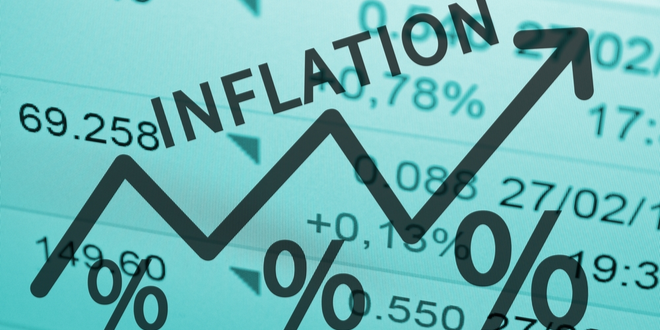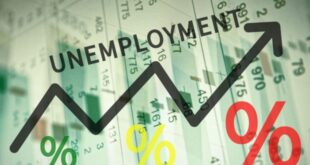Inland Empire business owners have many concerns about their companies’ immediate future, but one potential problem stands out above all others.
Inflation.
The Inland Empire Center for Entrepreneurship at Cal State San Bernardino interviewed 673 business owners earlier this year and asked them what their “greatest concern” was regarding their businesses and the immediate future.
Fifty-two point seven percent answered rising prices, by far the highest percentage of the top 10 answers given, according to the center’s State of Entrepreneurship report.
Inflation was mentioned 385 times by business owners in Riverside and San Bernardino counties during interviews conducted several months ago. It was the second consecutive year the Center for entrepreneurship has conducted an in-depth study of the two-county region’s business owners.
The possibility of a long recession was the second-highest concern (46.5 percent), followed by controlling cost (30.9 percent), fears of supply chain problems (23.8 percent), and competition from large businesses (19.3 percent).
Lingering effects from the pandemic, job burnout, not enough job applicants, and keeping employees and “others” completed the top 10.
Nearly 65 percent of the business owners who were questioned said they needed to improve their marketing skills, while 38 percent said they needed to do a better job of managing their cash flow. Nearly 40 percent wanted to improve their sales skills.
Better marketing should always be a top priority of any business because it attracts more customers and helps design better products, the report states.
Overall, the report concludes that Inland Empire entrepreneurs are optimistic about their businesses’ future, perhaps because most of them are turning higher profits than their national counterparts.
California’s heavy regulatory environment makes it difficult to attract new businesses and keep the ones that are here, but most Inland business owners believe the benefits of being in California outweigh the negatives.
“Lately, the Inland economy has been doing relatively well,” said Mike Stull, director of the Center for entrepreneurship and a member of the research team that gathered data for the report. “I think our business owners are cautiously optimistic about the future. Overall, the trends have been good, and it looks like there are a lot of growth opportunities out there.”
Some economists are predicting a mild economic slowdown early next year that will probably not last long, and Stull said he believes that prediction might be right.
“I’m afraid that inflation, if it gets worse, might cause a recession,” Stull said.
The report also notes that the Inland Empire experienced a significant increase in start-up businesses immediately after the pandemic ended, but since then it has seen a steep decline in the formation of new businesses.
By the end of 2022, the Inland Empire was producing start-up businesses at a pace faster than the national rate but not as fast as they were being developed in California, a pattern the report called “not a positive sign.”
Several possible explanations were offered for that trend, including higher labor costs, inflation, and recession fears.
The Inland region also had low unemployment in 2022, which is not necessarily conducive to people deciding to start their own businesses.
“People don’t very often leave a safe, well-paying job to start their own business,” Stull said “It’s ironic, but a strong economy isn’t always good for start-ups. They do tend to start when the economy is down and labor isn’t as expensive as it is in a good economy.
“But the failure rate with new businesses is always high.”
The report divides businesses into two categories: opportunity businesses, meaning those created to bring something new to the market and fill a specific need, and necessity businesses, which are those started by someone strictly for their personal gain.
The Inland Empire has always produced more necessity businesses, but anyone who wants to do that in today’s economy should probably reconsider, said Gene Valdez, an Upland resident and former banking executive.
“It’s a good time if you have a good idea for a business,” said Valdez, who now coaches people who want to start their own business. “If you can do that it can work, but it has to be something unique, and that’s hard to do.”
“Opening a restaurant right now probably wouldn’t be a good idea.”
Valdez acknowledged that inflation has been brought under control, at least for now. In September, the national inflation rate was 3.7 percent, essentially unchanged from August but down from 8.2 percent in September 2022.
That year-over-year decline is a sign of a healthy economy, but getting prices to stop rising is only half the battle, according to Valdez.
“Yes, prices aren’t going up, but they aren’t going down, either,” Valdez said. “I’m still paying $5 or $6 for a gallon of gas, and that’s too high. So I don’t care that inflation is technically under control.”
 IE Business Daily Business news for the Inland Empire.
IE Business Daily Business news for the Inland Empire.


